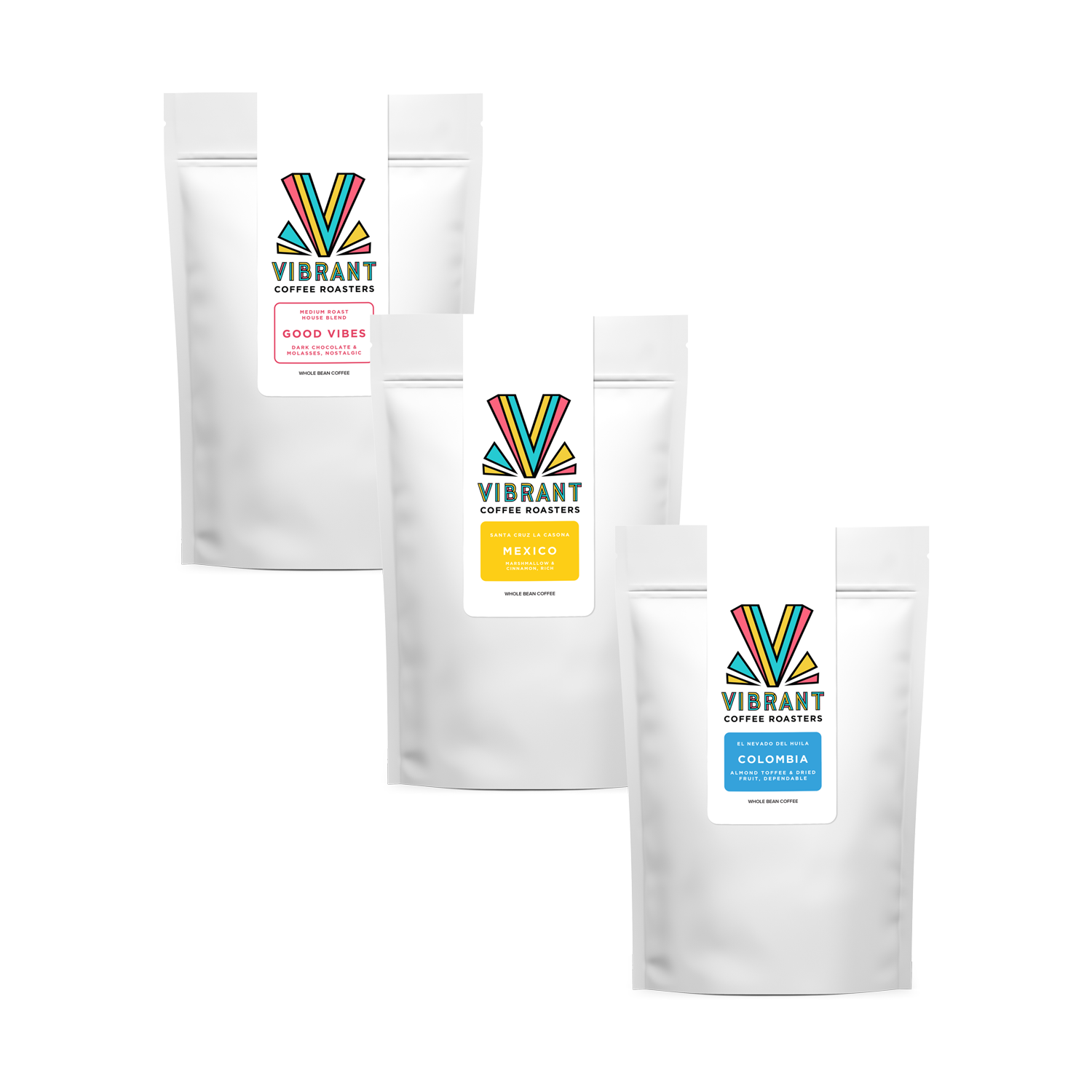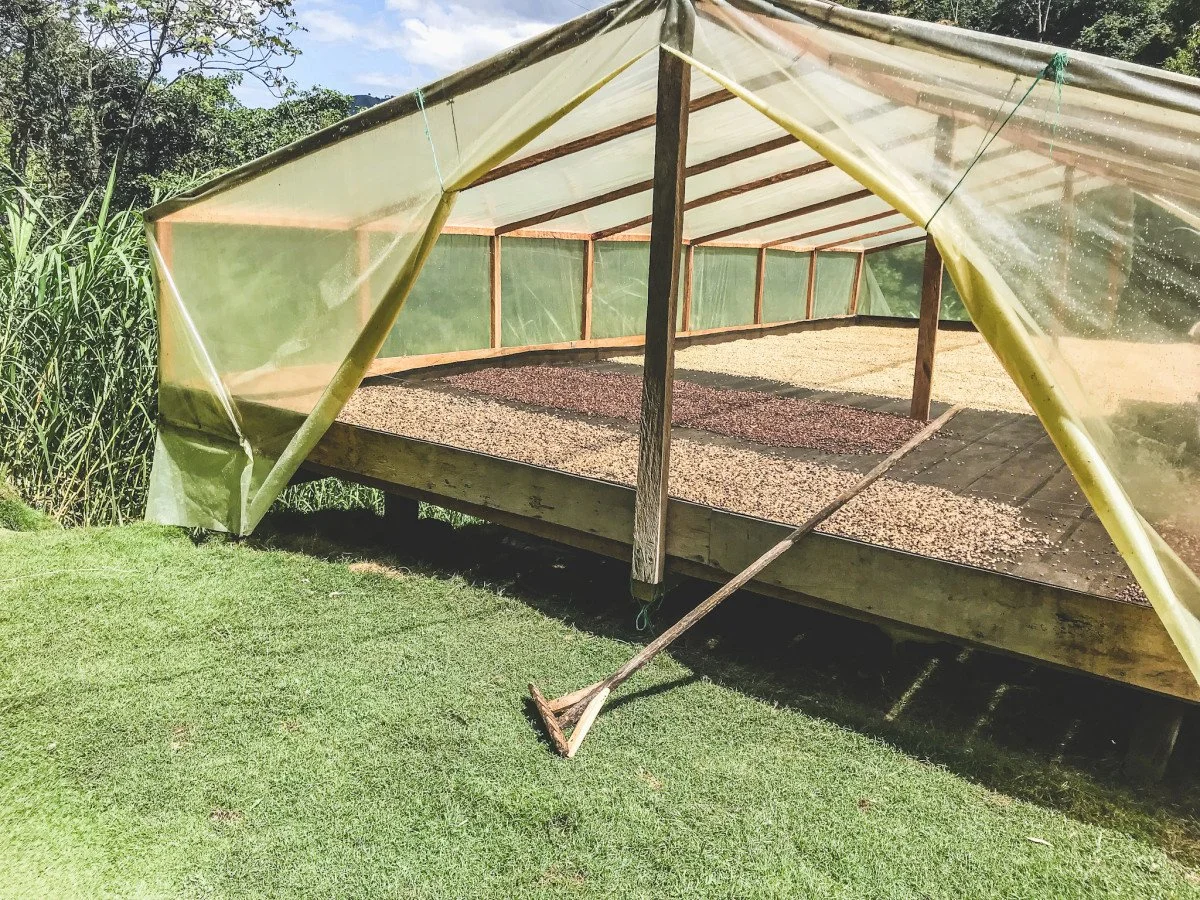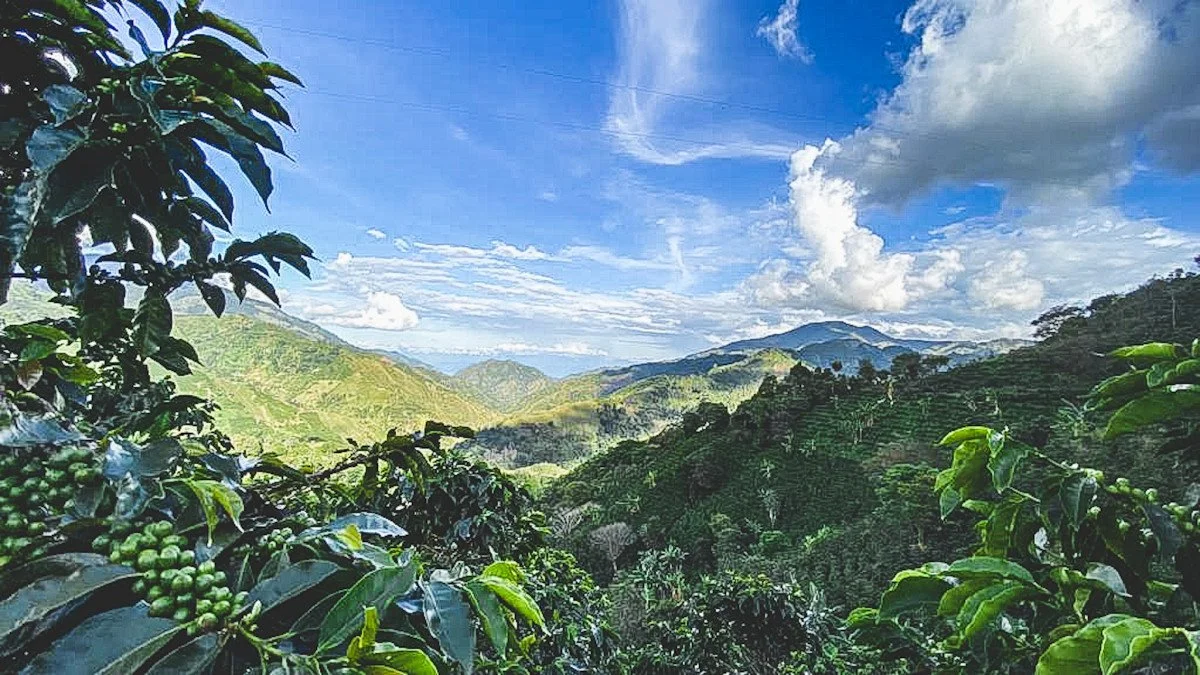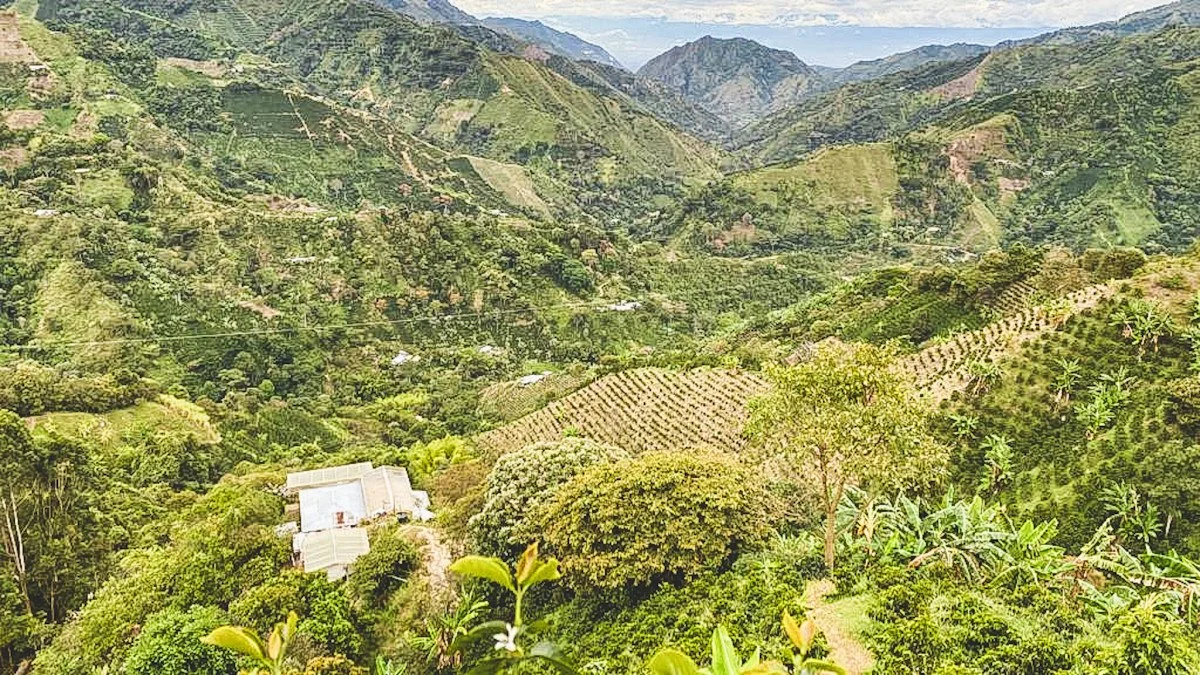Kenya Kiamugumo AB
Light Roast - Limited Roast
KENYA
Our final Kenyan of the season is here! Careful drying practices and meticulous sorting at the Kirinyaga washing stations have reversed the recent decline in Kenyan coffee quality so we are thrilled to have this one on the menu. We taste black currant, grapefruit, raspberry, lime, and cane sugar. We hope you enjoy it as much as we do.
PRODUCER:
Various small-holders (1-2 hectares per farm on average)
ORIGIN:
Ngariama, Nyangeni, Kirinyaga County
VARIETIES:
SL 28, Ruiru 11, Batian
ELEVATION:
1,600 masl
PROCESS:
Washed, Dried on Raised Beds
HARVEST:
October - December 2023
TASTING:
Black currant & cane sugar, electric
Why We Love This Coffee
Another gem from Kirinyaga! We’ve been loving these coffees the past two years - you may remember Kamwangi AA and Kamwangi AB, both from Kirinyaga County. Kiamugumo is a nearby washing station on the slopes of Mount Kenya that is putting out coffee that is every bit as good as Kamwangi. Quick reminder: AA and AB are just bean size designations; they are not an indication of quality (though you’ll find people who claim that AA always tastes the best). AA coffees are the largest beans - they will not pass through Grade 18 (18/64" diameter) sieve perforations. AB coffees are a mix of size A and size B - none will pass through a Grade 15 (15/64” diameter) sieve perforation.
Kenyan coffee was really fantastic up until the late 2010s but then sadly had a decline in quality for several years. The relatively poor quality coffee was partially due to higher temperatures which made the coffee dry faster. Coffee that dries too quickly loses its sweetness and tastes hollow and dull. Different washing stations have employed various strategies in the past year or two to mitigate this issue, including using solar dryers, or simply covering the coffee in plastic sheeting during the hottest part of the day and again at night to protect them from both the hottest and coldest temperatures. These strategies are working - this coffee is juicy and bright, with notes of black currant, grapefruit, raspberry, lime, and cane sugar.
This coffee is hand-sorted for unripe and overripe cherries by the farmers before processing. After de-pulping, the coffee is fermented for 12-24 hours in a fermentation tank under shade, then washed with water from the Kii River and dried on raised African drying beds to 11-13% moisture before being brought to the Central Kenya Coffee Mill in Karatina, Nyeri County for grading and sorting.
From Our Importer
Kiamugumo Coffee factory is run by a factory manager who oversees all activities within the factory. Together with other staff members they carry out duties such as weighing coffee, selection and grading of coffee, paying farmers and addressing farmers’ complaints.
In line with the rising awareness on the need to conserve the environment, the factory encourages its members to plant trees on their farms.
Kiamugumo has long-term goals to increase coffee production, training seminars, and access to education and sustainable processes for the farmers they work with. They also maintain a demonstration plot that farmers can visit and reference in relation to their own plots.
Kiamugumo washing station is located in the buffer zone surrounding Mount Kenya National Park. Mount Kenya is also an extinct volcano and the second highest snow-capped peak in Africa (5,199 masl), after Kilimanjaro.
The presence of this snowy mountain in Kirinyaga (the name of which actually means “White Mountain” in the native Kekuyu language) plays a fundamental role for the population and coffee of the surrounding areas. Its glaciers feed the Kii river which plays an important role in the processing of the coffee at the Kiamugumo washing station.
These glacier-fed rivers also help cool the surrounding areas, giving the farms in the county an annual temperature between 13 and 25 C—privileged temperatures compared to other coffee-growing areas in Africa.
The Ngariama area has a long chain of mountains that help provide a diversity of altitudes and terrain for coffee cultivation. While this could seem like an obstacle to access (as it is in Peru where the presence of Andes means getting to a farm can take 7+ hours by road), in Ngariama the farms are only about a 30 minute trail walk (1-2 km) from the Kiamugumo washing station. Only in the rainy season does access become complex as mud makes these unpaved trails challenging to navigate. There is good telephone signal in the area, so the washing station usually informs farmers about the final weight of their coffee and other interesting and useful data they’ve collected.
The main economic pillar in Ngariama is coffee. Other common crops grown are banana and maize. Grevillea, macadamia, and false banana trees are also planted to provide shade to the coffee trees.
Farms in this region are surrounded by forests of native trees where wild animals such as elephants and buffalos live. Local coffee producers use fences strategically along their farm perimeters to protect their crops and minimize contact with potentially dangerous fauna. The Kenyan government has prohibited logging and hunting in the area and producers are very respectful of these rules.
The predominant population of Ngariama community are the Kikuyu, the oldest native population in the area. Everyone in the area also speaks Kikuyu.
The farms here are mostly very small (1-2 hectares) and adults work the farms while children attend school all day. Schools here cost money, which unfortunately limits access to education and future opportunities in this mostly-poor area. Due to lack of opportunity, much of the young population is migrating en masse to cities in search of better jobs, leaving their parents alone on the farms or even taking their parents and abandoning their farms. This problem gets worse each year.









